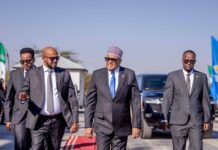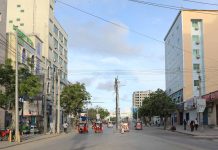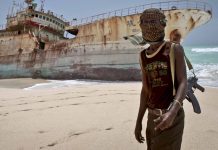MOGADISHU (Somaliguardian) – Amnesty International has accused Somalia’s government of failing to uphold its human rights obligations to protect citizens affected by severe drought, despite declaring the crisis a national disaster.
In a new report released on Monday, Amnesty said the Somali authorities had not done enough to guarantee the rights of drought-affected communities and criticised the government for allocating less than 5% of its national budget to health – far below the 15% target set by the African Union’s Abuja Declaration.
“Limited resources and the ongoing conflict are not an excuse to neglect international obligations and necessary government action; Somalia erred by folding its hands. Having declared the drought a national disaster, authorities should have ensured there were enough resources to protect drought affected people, including by seeking extra international assistance,” said Tigere Chagutah, Amnesty International’s Regional Director for East and Southern Africa.
A deepening crisis
The report draws on interviews conducted between September 2024 and March 2025 with 177 Somali refugees now living in Dadaab camp in Kenya, as well as with aid workers, government officials, and climate experts. It paints a grim picture of worsening humanitarian conditions driven by prolonged drought, conflict, and climate change.
According to Amnesty, the drought that began in southern Somalia in 2022 has been intensified by human-induced climate change, leading to mass displacement and widespread food insecurity. As water sources dried up, many people were forced to drink contaminated water, resulting in outbreaks of water-borne diseases such as cholera.
With health services in short supply, some Somalis reportedly travelled up to 1,000 kilometres to reach medical facilities. Meanwhile, food prices have surged by as much as 160% compared with pre-2020 levels, leaving millions struggling to afford basic necessities.
The drought was eventually declared a national disaster in November 2021 Amnesty noted, adding that depleted food reserves, parched farmland, and reduced incomes have left communities facing acute hunger and malnutrition.
Bearing the brunt of a global crisis
“Somalia is on the frontline of human-induced climate change. As the seventh most climate-vulnerable country in the world, Somalia’s authorities, with the support of the international community, must urgently address the marginalization of communities in southern Somalia who are acutely impacted by global warming caused mainly by fossil fuel combustion,” said Chagutah.
“Somalia’s contribution to global warming is negligible, yet its people are bearing the brunt of the climate crisis, while also facing long running conflict and poverty. High income countries, especially those most responsible for climate change, must step in and meet their obligations to support Somalia in adapting to the effects of climate change.”
Repeated displacement and perilous journeys
Amnesty’s report highlights the plight of internally displaced persons (IDPs) who have been uprooted multiple times – first within Somalia and later across the border into Kenya. Many initially sought refuge in informal camps in southern Somalia, where limited government services and aid were available. But as droughts and floods intensified, these camps became uninhabitable.
As conditions worsened, thousands began the dangerous journey to Dadaab, a sprawling refugee complex near the Somalia–Kenya border. Depending on their resources, the journey could take from two days to six weeks. Those able to pay exorbitant fares travelled by vehicle, while others sold their few possessions — livestock, grain, or even land — to finance the trip.
“Having declared the drought a national disaster, authorities should have ensured there were enough resources to protect drought affected people, including by seeking extra international assistance,” Chagutah said.
Amnesty found that humanitarian services along key transport routes were scarce, with limited aid concentrated mainly in IDP settlements rather than along migration corridors — a situation it said was inconsistent with Somalia’s obligations under both its constitution and international law, including the African Union’s Kampala Convention.
The organisation urged Somalia’s government and international partners to act urgently to address the needs of drought-affected populations and ensure that those displaced by climate change receive adequate protection and support.
Contact us: info@somaliguardian.com











